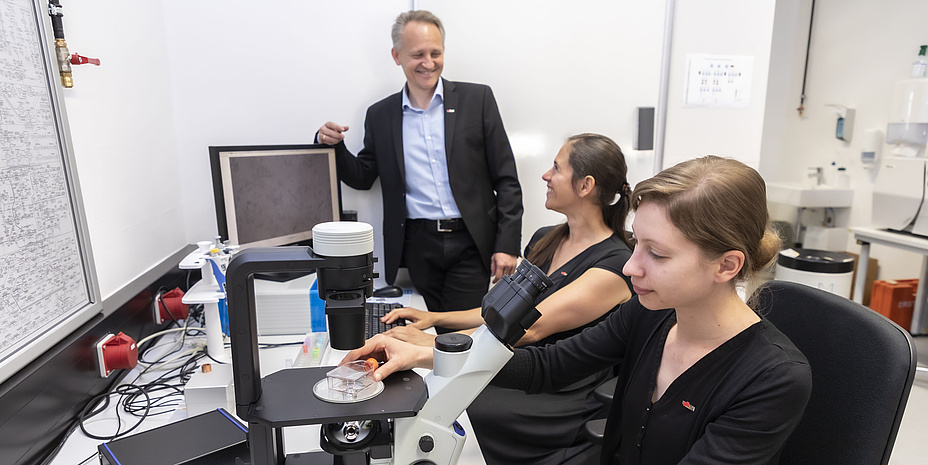Research data without borders

Scientific researchers produce a lot of data in their experiments – data that has remained within the research groups for a long time, apart from that used in scientific publications. What if this data could be used across disciplines? The FAIR data principles play an essential role in this. Data should be findable, accessible, interoperable and reusable. The members of the European Open Science Cloud (EOSC) are convinced that this will lead to higher research productivity, new insights and innovations, as well as better reproducibility and greater trust in science.
Seamless access to research data through interoperable services
The aim of the European Open Science Cloud (EOSC) is to develop a “web of FAIR data and services” for science in Europe. EOSC is intended to be a multidisciplinary environment where researchers can publish, find and reuse data, tools and services. This is to enable them to do their work better. The EOSC builds on existing infrastructures and services provided by the European Commission, member states and research communities. In a federated “system of systems”, these services are brought together, adding value by being shared and pooling content.
In Austria, the EOSC Support Office Austria has been working for a little over a year to pool national activities related to EOSC and Open Science. “Our Austrian contribution and our initiative have become internationally visible,” says Ilire Hasani-Mavriqi, head of Research Data Management at TU Graz and chair of the management board of the EOSC Support Office Austria, looking back on the work done so far. She emphasizes: “TU Graz will continue to actively participate in the development of EOSC together with other Austrian partners.” And there are numerous ideas for this development. On the one hand, countries with fewer resources should receive support from better-equipped countries – for example, through access to large data centres. On the other hand, it is important not only to publish success data. Presenting failed experiments could also save a lot of time for other researchers.
TU Graz hosts the General Assembly of the EOSC Support Office Austria
At the second General Assembly of the EOSC Support Office Austria in November 2022 at Graz University of Technology (TU Graz), the next course was set for Open Science in Austria. During the event, TU Graz handed over the chair to the Natural History Museum Vienna.
More information on the websites of EOSC and the EOSC Support Office Austria.
Kontakt
Ilire HASANI-MAVRIQI
Dipl.-Ing. Dr.techn. Bakk.techn.
TU Graz | Library and Archive – Research Data Management
Phone: +43 316 873 30679
Mobile: +43 664 2675163
ilire.hasani-mavriqi@tugraz.at



